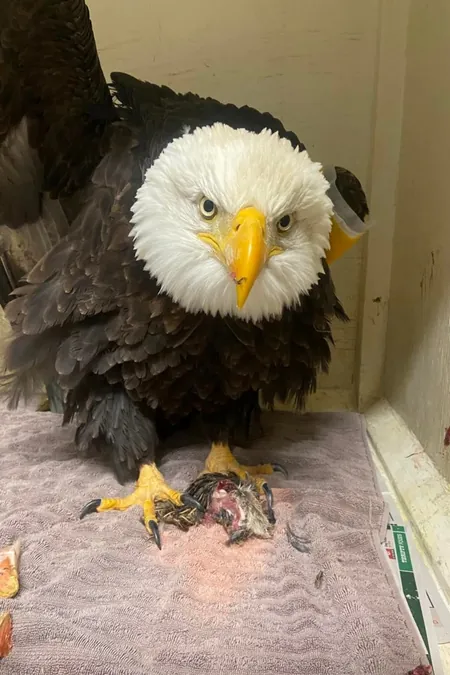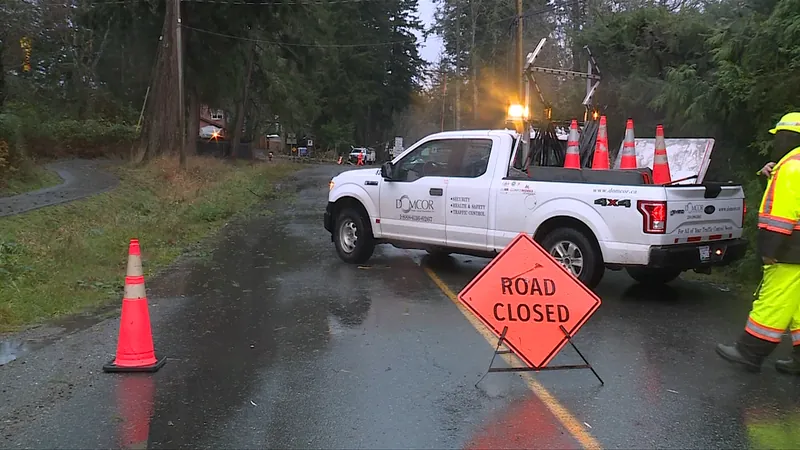
Avian Flu Alert: Delta Bird Shelters Taking Urgent Action to Protect Wildlife and Humans!
2024-11-22
Author: Emma
Avian Flu Alert: Delta Bird Shelters Taking Urgent Action to Protect Wildlife and Humans!
The battle against avian flu is escalating in British Columbia as the province's chief veterinarian, Theresa Burns, has issued a critical order aimed at curbing the spread of the “highly pathogenic” H5N1 and H7 strains of the avian influenza A virus.
As of October 22, bird owners in the Lower Mainland—a region known for its dense avian population—are now prohibited from taking their ducks, geese, chickens, and other domesticated birds to any co-mingling events. This includes flea markets, bird shows, public exhibitions, auctions, and poultry swaps, all of which pose significant risks for disease transmission among birds.
This decisive move comes in response to the alarming detection of avian flu outbreaks on poultry farms in the province. Burns explained that the H5N1 strain has not only been confirmed in birds but is also present in the environment, highlighting the urgency of the situation. Recent reports indicate that this strain has been found in the mud of wetlands—areas frequented by migratory birds—indicating widespread environmental contamination.
For three consecutive years, British Columbia has grappled with the H5N1 virus, leading to the infection of 43 premises and affecting an estimated 6.5 million birds, according to the Canadian Food Inspection Agency. Delta has become a focal point, as two facilities that handle wild birds reported cases of possible avian flu.
In a grim development, Rob Hope, manager of the Orphaned Wildlife Rehabilitation Society, shared that a dozen raptors have died under suspicious circumstances related to the virus. Although they are experiencing a normal volume of wildlife calls, the potential threat to both animals and humans is concerning. "We’re just trying to do the best we can, not only to protect the animals but to safeguard people as well," he said.
Currently, OWL is monitoring one bird in quarantine suspected of having the flu, maintaining strict protocols. Staff members who handle birds are advised to wear protective gear—masks, goggles, gloves, and boots—to minimize the risk of transmission.
The migration season is intensifying wildlife interactions, making it more likely to encounter sick birds. Individuals who spot a distressed raptor are encouraged to document it through photos or videos and contact OWL for guidance. Symptoms can sometimes resemble those of injuries or poisoning, complicating the situation further.
In the meantime, OWL has also been proactive, continuing to host their raptor exhibits while implementing safety measures such as distancing limits and thorough cleanup procedures. As a positive sign, they have received 630 birds this year alone, surpassing last year’s total of 608.
At the George C. Reifel Migratory Bird Sanctuary, manager Kathleen Fry reported that her staff is diligently monitoring for sick or deceased birds despite challenges posed by stormy weather, which can wash away evidence. So far, they have uncovered several dead birds, which have been sent to Environment and Climate Change Canada for testing.
With the avian flu making headlines, there is growing concern about its transmission to humans. Just recently, Canada’s Public Health Agency confirmed the first human case of the H5N1 strain in a teenager from the Lower Mainland. Authorities are urging the public to refrain from hand-feeding birds and to practice good hygiene, especially in light of the risk of close interaction with infected species.
As we stand at the crossroads of nature and potential health crises, it becomes increasingly important to heed these warnings, safeguard our wildlife, and take collective measures to prevent the flu from spreading. The health of birds, as well as society, hangs in the balance—so stay vigilant, and let’s protect our feathered friends!









 Brasil (PT)
Brasil (PT)
 Canada (EN)
Canada (EN)
 Chile (ES)
Chile (ES)
 España (ES)
España (ES)
 France (FR)
France (FR)
 Hong Kong (EN)
Hong Kong (EN)
 Italia (IT)
Italia (IT)
 日本 (JA)
日本 (JA)
 Magyarország (HU)
Magyarország (HU)
 Norge (NO)
Norge (NO)
 Polska (PL)
Polska (PL)
 Schweiz (DE)
Schweiz (DE)
 Singapore (EN)
Singapore (EN)
 Sverige (SV)
Sverige (SV)
 Suomi (FI)
Suomi (FI)
 Türkiye (TR)
Türkiye (TR)